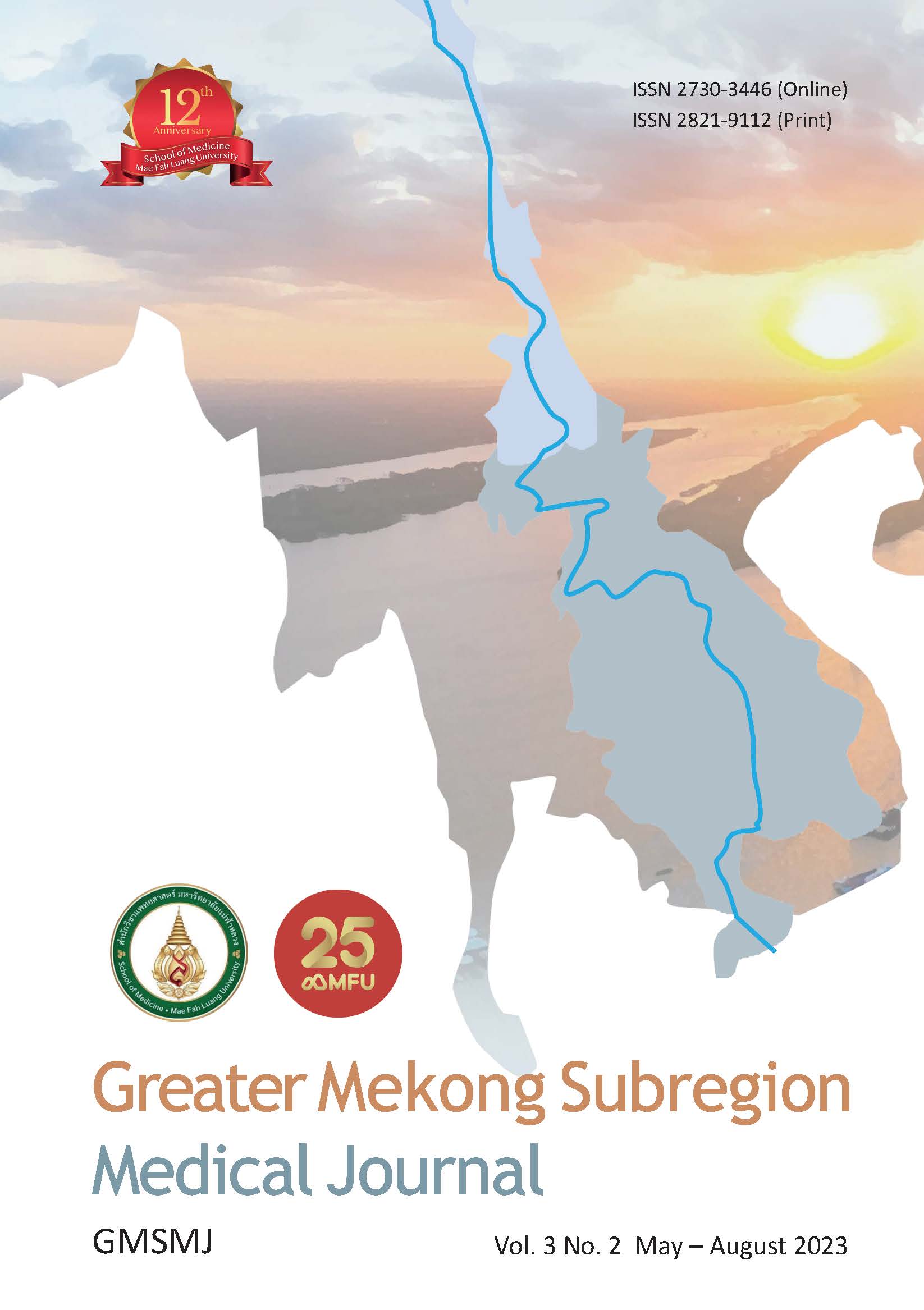Bloodless Treatment in Jehovah’s Witnesses with Acute Myeloid Leukemia
Keywords:
Jehovah’s Witnesses, Acute myeloid leukemia, Optimal Patient Blood ManagementAbstract
Jehovah’s Witnesses are a millenarian Christian faith with approximately 8.5 million adherents worldwide involved in evangelism and a much larger number (nearly 20 million) who associate with them.1 In Thailand, there are more than 5,000 Jehovah’s Witnesses. They value life and accept the vast majority of medical treatments. However, they do not accept allogeneic blood transfusion therapy because of their understanding of Biblical statements to abstain from blood. We report the case of a Thai woman who presented with pruritus for 6 weeks and was diagnosed acute myeloid leukemia (AML). She received treatment without any blood component transfusion and achieved complete remission. We also used measures and drugs that alleviated anemia and bleeding problems in order to avoid blood transfusion. Because the number of Jehovah’s Witnesses is increasing, growing numbers of non-Witness patients prefer treatment without blood transfusion, and because blood inventory shortages, safety, and blood costs continue to be of concern in many countries, this is a relevant topic for clinicians. Management of patients without allogeneic blood is a medical and ethical challenge for medical practitioners in Thailand, but it can be met as we show in this case report.
References
How Many of Jehovah’s Witnesses Are There Worldwide? Available at: https://www.jw.org/en/jehovahswitnesses/ faq/how-many-jw/
Ridley DT. Jehovah’s Witnesses’ refusal of blood: obedience to scripture and religious conscience. J Med Ethics. 1999; 25: 469-72. https://doi.org/10.1136/jme.25.6.469
What Do Jehovah’s Witnesses Believe? - JW.org https://www.jw.org
Rashid M, Kromah F, Cooper C. Blood transfusion and alternatives in Jehovah’s Witness patients. Curr Opin Anaesthesiol. 2021; 34 (2): 125-130. doi: 10.1097/ACO.0000000000000961. https://doi.org/10.1097/ACO.0000000000000961
Holt RL, Martin TD, Hess PJ, Beaver TM, Klodell CT. Jehovah’s Witnesses requiring complex urgent cardiothoracic surgery. Ann Thorac Surg. 2004; 78 (2): 695-7. doi: 10.1016/S0003-4975(03) 01494-2. https://doi.org/10.1016/S0003-4975(03)01494-2
Nash MJ, Cohen H. Management of Jehovah’s Witness patients with haematological problems. Blood Rev. 2004; 18 (3): 211-7. doi: 10.1016/ S0268-960X (03)00065-1. https://doi.org/10.1016/S0268-960X(03)00065-1
Leelasiri A, Srichaikul T. Jehovah’s Witnesses. Role of hematologist. Report of a case. RTA Med J. 1997; 50: 206-8.
Downloads
Published
How to Cite
Issue
Section
License

This work is licensed under a Creative Commons Attribution-NonCommercial-NoDerivatives 4.0 International License.






